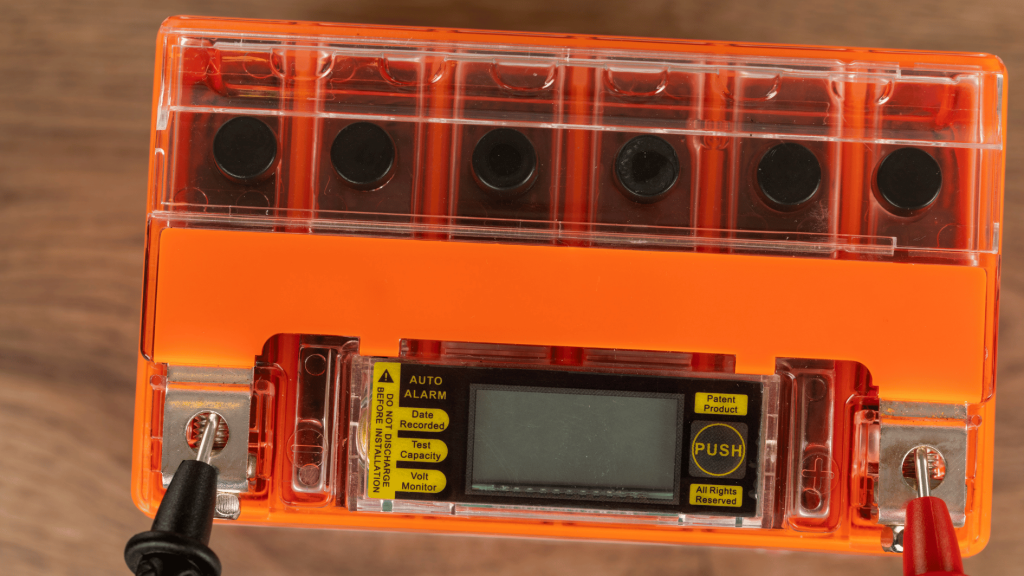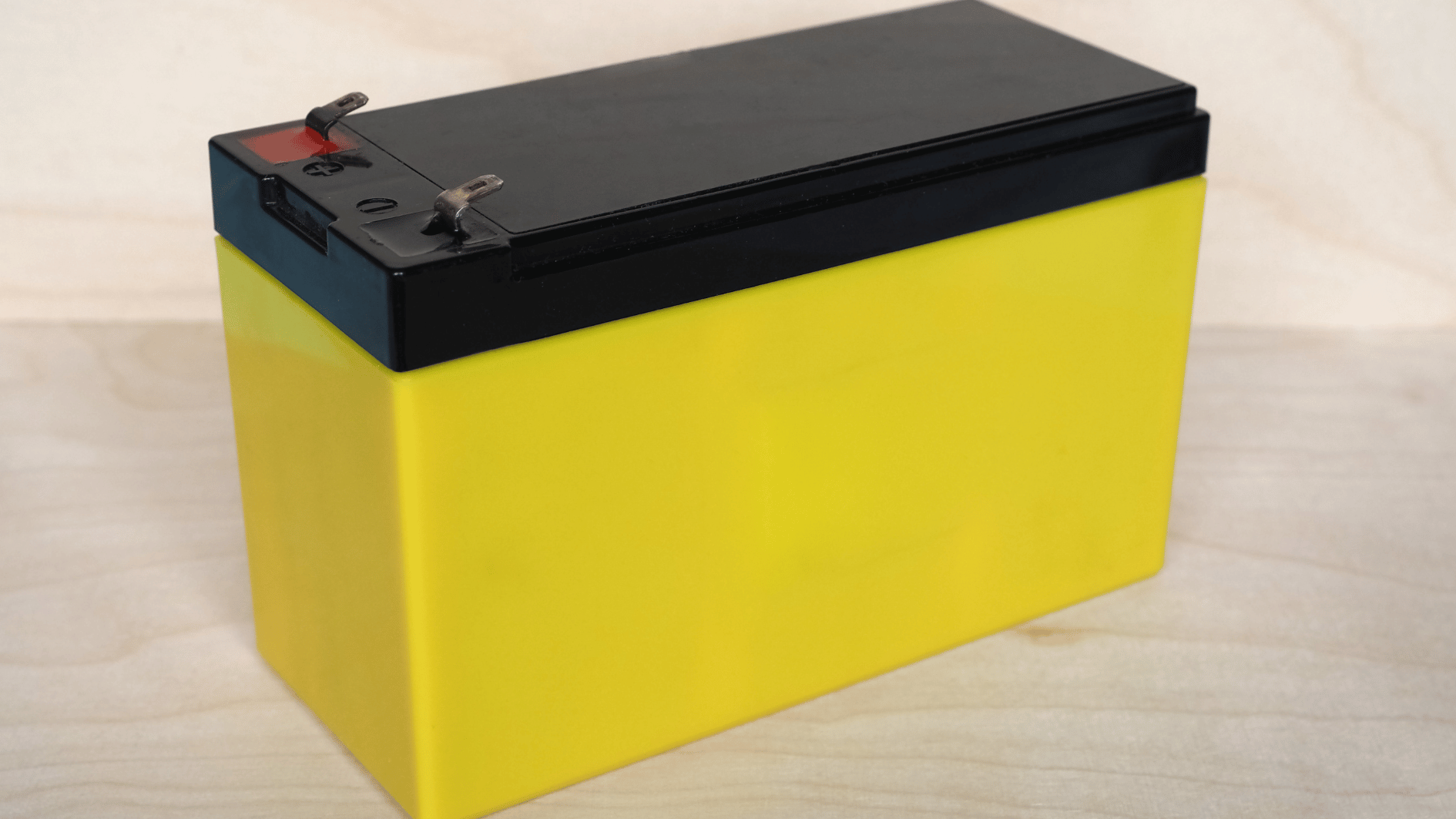Image source: Canva.com
When planning a solar power system, selecting the right battery for energy storage is crucial. While there are several options available, lead-acid batteries are a common choice due to their affordability and long history of use. But are they the best option for your solar storage needs? In this article, we will explore the advantages and limitations of lead-acid batteries, compare them with other battery types, and help you decide whether they are the right fit for your system.
Understanding Lead-Acid Batteries
Lead-acid batteries are one of the oldest and most established battery technologies, commonly used in off-grid solar systems. They store energy by using a chemical reaction between lead plates and sulfuric acid. There are two main types of lead-acid batteries used for solar storage:
Flooded Lead-Acid Batteries
These are the traditional, vented batteries that require regular maintenance, including adding water and equalizing charges.
These are maintenance-free and use a sealed design, making them more user-friendly for residential solar setups.
Sealed Lead-Acid Batteries
Advantages of Lead-Acid Batteries
Lead-acid batteries offer several benefits that make them an attractive option for solar storage:
Affordability
One of the most significant advantages of lead-acid batteries is their low upfront cost. They are far less expensive than newer battery technologies like lithium-ion, making them an appealing option for homeowners on a budget.
Proven Technology
Lead-acid batteries have been around for over a century and are widely used in various industries. Their reliability and well-established performance make them a trustworthy choice for solar energy storage.
Availability
Because they have been in use for so long, lead-acid batteries are widely available and easy to source. Replacement parts and systems are also relatively easy to find, making them accessible in most regions.
Off-Grid Capability
Lead-acid batteries are particularly useful for off-grid solar systems due to their compatibility with different system setups and their ability to handle moderate power storage needs.
Limitations of Lead-Acid Batteries
While lead-acid batteries have some strong advantages, they come with notable drawbacks that may influence your decision:
Shorter Lifespan
Lead-acid batteries typically last between 3 to 5 years, depending on usage and maintenance. This is significantly shorter than lithium-ion batteries, which can last 10 years or more. The shorter lifespan of lead-acid batteries means more frequent replacements and higher long-term costs.
Lower Efficiency
Lead-acid batteries have a lower energy efficiency compared to lithium-ion batteries. They typically convert 80-85% of the energy they store, meaning more energy is lost during the charging and discharging process. Over time, this can result in reduced energy savings.
Depth of Discharge (DoD)
Lead-acid batteries can only be discharged to around 50% of their capacity without damaging the battery. This limits the amount of usable energy compared to batteries with higher DoD, such as lithium-ion, which can be discharged to 80-90%.
Maintenance Requirements
Flooded lead-acid batteries require regular maintenance, such as adding distilled water and performing equalization charges to prevent sulfation. This adds an extra layer of upkeep that many homeowners may want to avoid.
Size and Weight
Lead-acid batteries are large and heavy, which may be a consideration if space is limited or if you are planning a portable or mobile solar setup. In contrast, lithium-ion batteries offer more compact storage solutions.

Comparing Lead-Acid to Other Battery Types
Lithium-Ion Batteries
Lithium-ion batteries have become the preferred choice for modern solar storage systems. They are more efficient, have a longer lifespan (up to 15 years), and require little to no maintenance. However, they come with a higher upfront cost, which can be prohibitive for some homeowners.
Flow Batteries
Flow batteries are another emerging technology offering deep discharge capability and long cycle life. However, they are still relatively expensive and less common for residential solar systems.
Saltwater Batteries
Saltwater batteries are a newer, eco-friendly alternative, offering better sustainability. While still in early stages of adoption, they may become a viable option for solar storage in the future.
Is a Lead-Acid Battery the Right Choice for You?
Choosing a lead-acid battery for your solar storage system depends on several factors:
Budget
If you have a limited budget and are looking for an affordable energy storage solution, lead-acid batteries are a good option. The lower upfront costs make them more accessible, especially for those looking to offset their energy costs with solar quickly.
Energy Usage
If your energy demands are moderate and you only need to store energy for short periods, such as for backup power during outages, lead-acid batteries can fulfill your needs efficiently. However, if you rely heavily on solar energy to power your home, you may want to consider more efficient options like lithium-ion.
System Maintenance
Flooded lead-acid batteries require ongoing maintenance. If you are comfortable with regular upkeep, or if you opt for sealed lead-acid batteries, they can be a reasonable choice. Otherwise, low-maintenance alternatives like lithium-ion may better suit your lifestyle.
Space and Installation
If your system requires compact and lightweight storage, lead-acid batteries may not be ideal due to their size and weight. Lithium-ion batteries offer a more space-efficient solution.
Lead-acid batteries remain a viable and cost-effective option for solar energy storage, especially for those with budget constraints or moderate energy needs. However, their shorter lifespan, lower efficiency, and higher maintenance requirements make them less suitable for long-term, high-demand solar storage solutions. For homeowners seeking a more efficient and long-lasting system, investing in lithium-ion or exploring other battery technologies may provide better value in the long run. Ultimately, the choice depends on your specific energy requirements, budget, and willingness to manage battery maintenance.
Explore SolarWiki’s Batteries page for more info.





